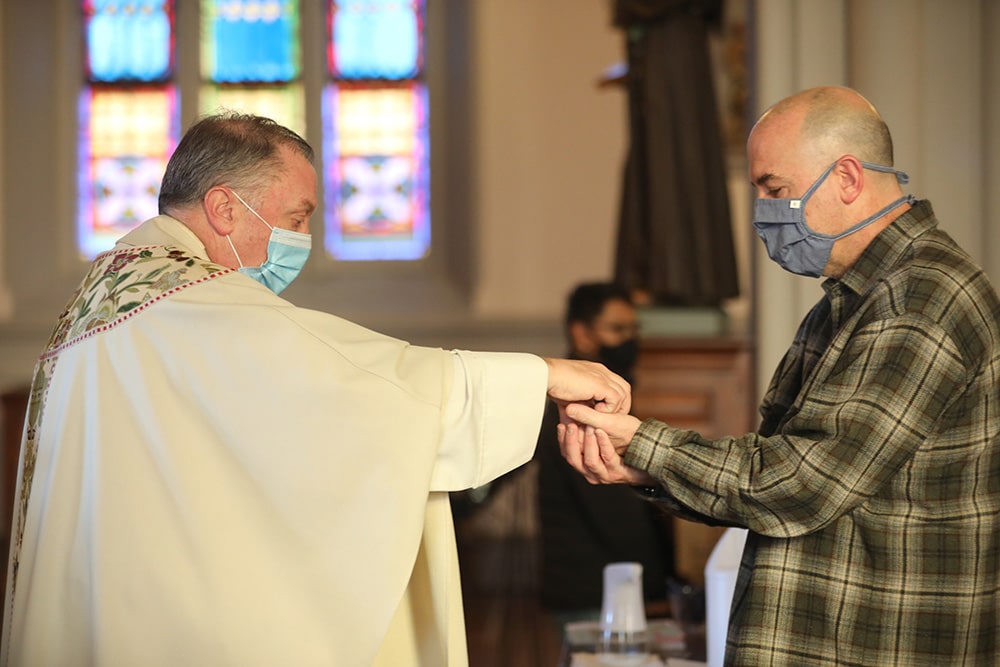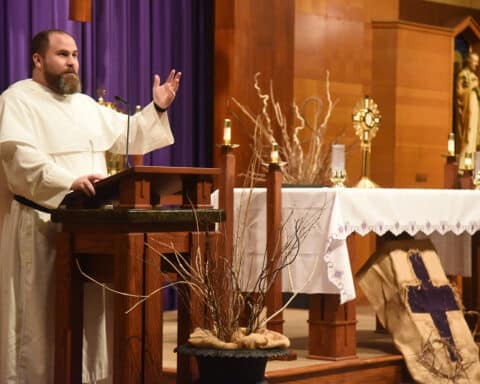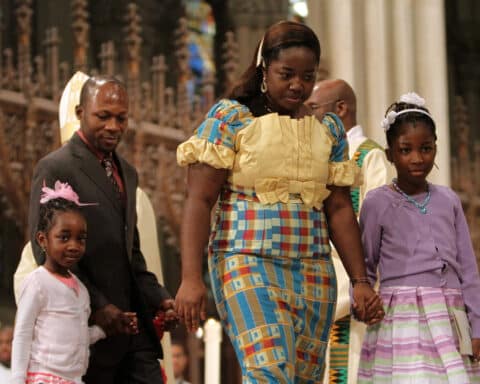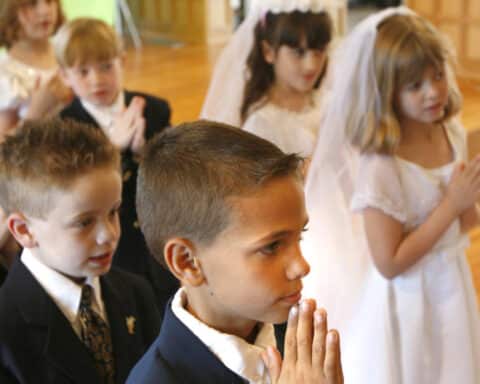
— Name withheld, Los Angeles
Answer: If the sacred host falls to the floor, the person or the priest should retrieve it right away. It should be verified that no particles are on the floor. If there are visible particles, or if one has doubts, then a linen purificator should be placed over the area where the host fell. After the Mass, the area should be cleaned with water and a purificator. In some cases, if the host simply dropped from the hands of the priest or from the hands of the recipient, the priest might choose to simply pick up the host and consume it. However, if the host has touched the tongue of the recipient or is soiled in a way that makes the priest uncomfortable in consuming it, he should take the host directly to the altar and lay it on the corporal. If this is not possible, he should isolate that host in such a way as not to distribute it to others. After Mass, he can then rinse it in the sacrarium (a special sink in the sacristy that empties directly into the ground and not the sewer system). Sometimes, if the host cannot be consumed in this manner, it is dissolved in a vessel of water until the species of bread is no longer evident. This may take several days, and the covered vessel should be kept in the tabernacle.
The process is similar if any of the precious blood should fall to the floor. In the General Instruction of the Roman Missal we read, “If any of the Precious Blood is spilled, the area where the spill occurred should be washed with water, and this water should then be poured into the sacrarium in the sacristy” (No. 280). The purificators used to soak up the spot should be cleaned in the usual manner, with the first rinsing of the linens poured into the sacrarium.
Jesus’ intercession
Question: There are many prayers that ask Jesus to intercede for us with God. Why? Isn’t Jesus God? Why should we have to ask Jesus to intercede for us with God? Shouldn’t we simply pray to God to help us? If there’s only one God, although three persons, why do we pray to each person individually to help us and not just God?
— Jeannine Aucoin, Henniker, New Hampshire
Answer: You are correct in noting that there is only one God, one divine nature and one divine will. But we must also recall that Jesus has two natures: divine and human. It is as man, from out of his human nature, that he can pray to his Father and intercede for us. Likewise, it is out of his human nature and human will that he can obey his Father and adore, give thanks and praise him.
Regarding his role of intercession for us, Scripture says: “but [Jesus], because he remains forever, has a priesthood that does not pass away. Therefore, he is always able to save those who approach God through him, since he lives forever to make intercession for them” (Heb 7:24-25). And in another place we read: “It is Christ [Jesus] who died, rather, was raised, who also is at the right hand of God, who indeed intercedes for us” (Rom 8:34). And yet again: “we have an Advocate with the Father, Jesus Christ the righteous one” (1 Jn 2:1).
Hence, we see Jesus interceding and advocating for us as the great high priest, as head of the body, the Church, and as seated in glory. Among other reasons he took up humanity not only to save us, but also to represent us and present us as members of his body to the Father. It is he the great high priest who offers the Eucharist. The great thanksgiving to his Father and our prayers are joined to his. At Mass you should not merely see the priest Father Jones, but rather Jesus himself offering the Eucharistic prayer. The entire Eucharistic prayer is offered to the Father by Jesus at every Mass.
Msgr. Charles Pope is the pastor of Holy Comforter-St. Cyprian in Washington, D.C., and writes for the Archdiocese of Washington, D.C. at blog.adw.org. Send questions to msgrpope@osv.com.





